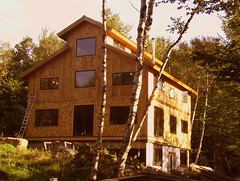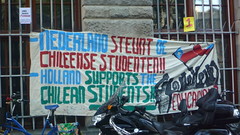 My guest on this edition of Citizenreporter.org is Chilean-American, community organizer, world citizen Nick Farr who has been traveling around Chile observing many of the activities connected with the student protests demanding education reform in that country.
My guest on this edition of Citizenreporter.org is Chilean-American, community organizer, world citizen Nick Farr who has been traveling around Chile observing many of the activities connected with the student protests demanding education reform in that country.
For several months students throughout Chile have been holding mass rallies, protests as well as occupying university and high school buildings, demanding the government take action to address inequality in the education system and the creation of the country’s first free higher education option.
Presently education in Chile consists of a few prestigious charter-type schools, many more prestigious private schools which are very expensive, and then the rest of the public system that is considered poor quality-undesirable schooling. Rural areas, which is most of Chile, are especially plagued by a lack of affordable education. But even in cities these days, access to good schools is entirely dependent on where you live.
The student movement that has exploded throughout the country is focused on the need for better quality and more accessible public education at all levels, especially secondary and university education. While occupy wall street started just over a month ago, students in Chile began occupying school buildings 4 months ago. As part of the occupation, they carry out a fully functioning program of providing meals, classes and cultural activities.
One of the arguments against the students stems from the main leader of the movement who is a very vocal communist. Political opponents and many critical Chileans view his role as “evidence” that this protest is a communist invasion of the country.
Meanwhile the nation, that is highly dependent on the price of copper, struggles as global commodity prices have become so unstable. Graduates who come out of the current higher education system find themselves with little choice when it comes to jobs and career. Despite whatever specialized skills and training they might have had, the only work available to them might be in the low paying service industry.
With the protests as the backdrop, negotiations take place and one point the government hopes students will compromise on is the goal of a “free” education. A point that student leaders refuse to compromise on.
After several decades of tremendous socio-economic progress which saw Chile become a much admired country in the region and around the world, there is talk now of a shrinking middle class and a return to the former paralyzing state of cronyism and inequality.
Will Chilean students achieve their goal? Will the unpopular Chilean government give in to a mass movement sweeping the nation and conducting mass action in the streets and in the schools? In a time where so many nations have bought into the idea of corporate schools or charter schools, could Chile be the place where an old idea is given new life – universal public education.
Link:
Educación 2020 – One of the Movement’s Web Sources
El Mercurio – News from Chile
 Bank Transfer Day was this past weekend. Even now, people around the world are looking at their bank account thinking, maybe I dont want my money with these guys. What are the alternatives? Many will say “all banks are the same” as a way of justifying not doing anything. But what a little investigation can easily reveal is that not all banks are the same.
Bank Transfer Day was this past weekend. Even now, people around the world are looking at their bank account thinking, maybe I dont want my money with these guys. What are the alternatives? Many will say “all banks are the same” as a way of justifying not doing anything. But what a little investigation can easily reveal is that not all banks are the same.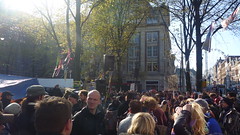
 My guest on this edition of Citizenreporter.org is Chilean-American, community organizer, world citizen
My guest on this edition of Citizenreporter.org is Chilean-American, community organizer, world citizen 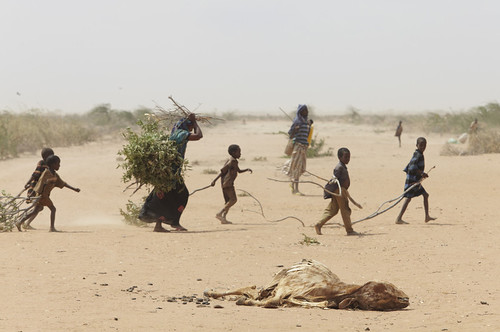
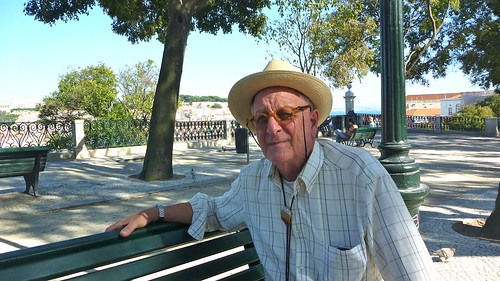 John Howard Wolf doesn’t know how to fix the global economy, but he can teach us a thing or two about education. Its been his business and passion for most of his adult life. Having immigrated from the US to Portugal in the late 1970’s, even back then he was a swimming against the current, setting up a primary school in a country still getting over its post-fascist hangover. As a Americano-Luso (American-Portuguese) he has a unique perspective based on the kind of experiences most of us only wish we could have. John Howard Wolf knows literature and he knows history, but what he knows that the world would be lucky to hear about, is another way to approach life and human relations on this planet. For one great hour on the last days of summer in Lisbon, we sat together watching the world go by during a financial crisis, and talking about how this all happened and what is to come.
John Howard Wolf doesn’t know how to fix the global economy, but he can teach us a thing or two about education. Its been his business and passion for most of his adult life. Having immigrated from the US to Portugal in the late 1970’s, even back then he was a swimming against the current, setting up a primary school in a country still getting over its post-fascist hangover. As a Americano-Luso (American-Portuguese) he has a unique perspective based on the kind of experiences most of us only wish we could have. John Howard Wolf knows literature and he knows history, but what he knows that the world would be lucky to hear about, is another way to approach life and human relations on this planet. For one great hour on the last days of summer in Lisbon, we sat together watching the world go by during a financial crisis, and talking about how this all happened and what is to come.